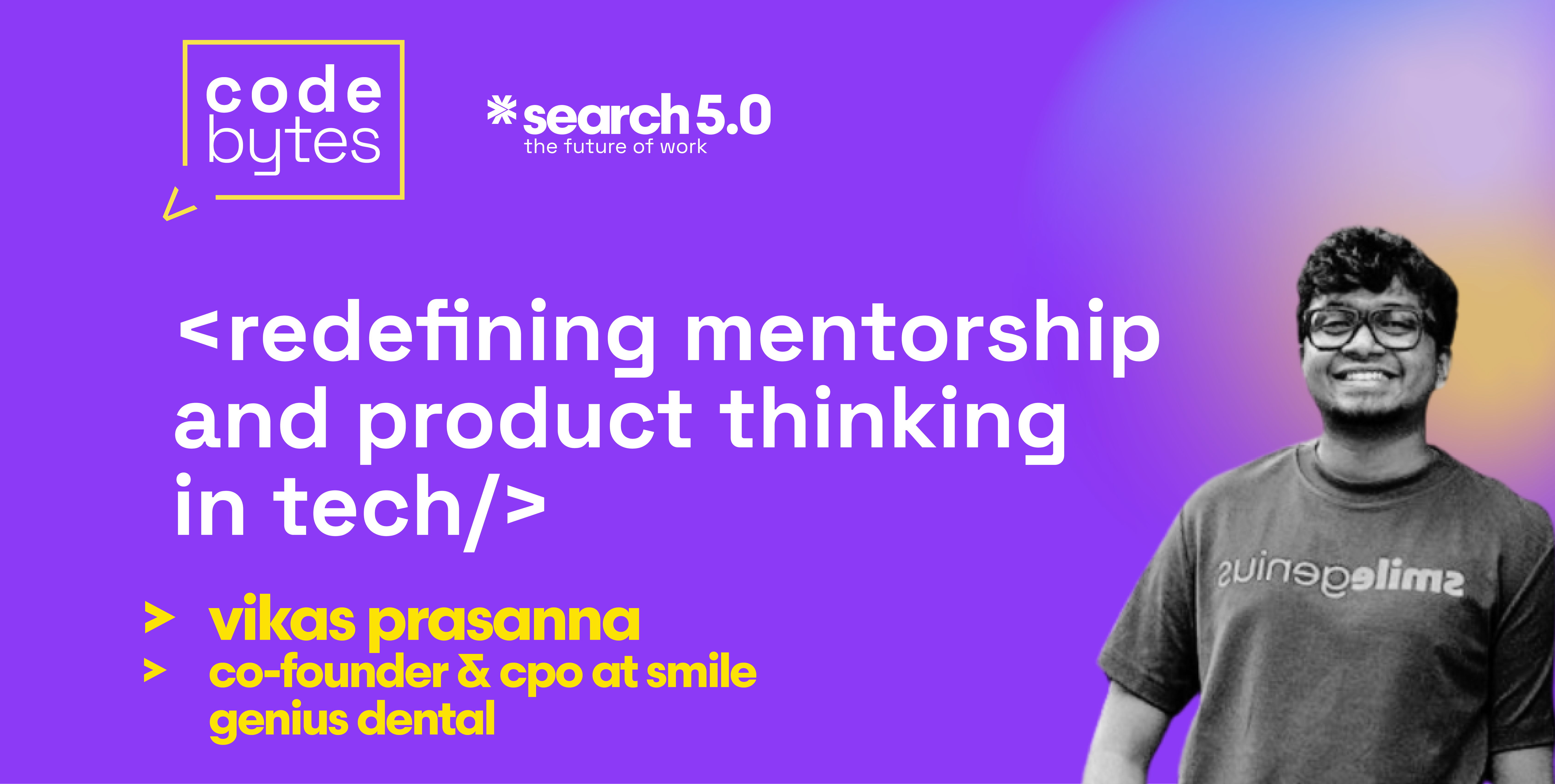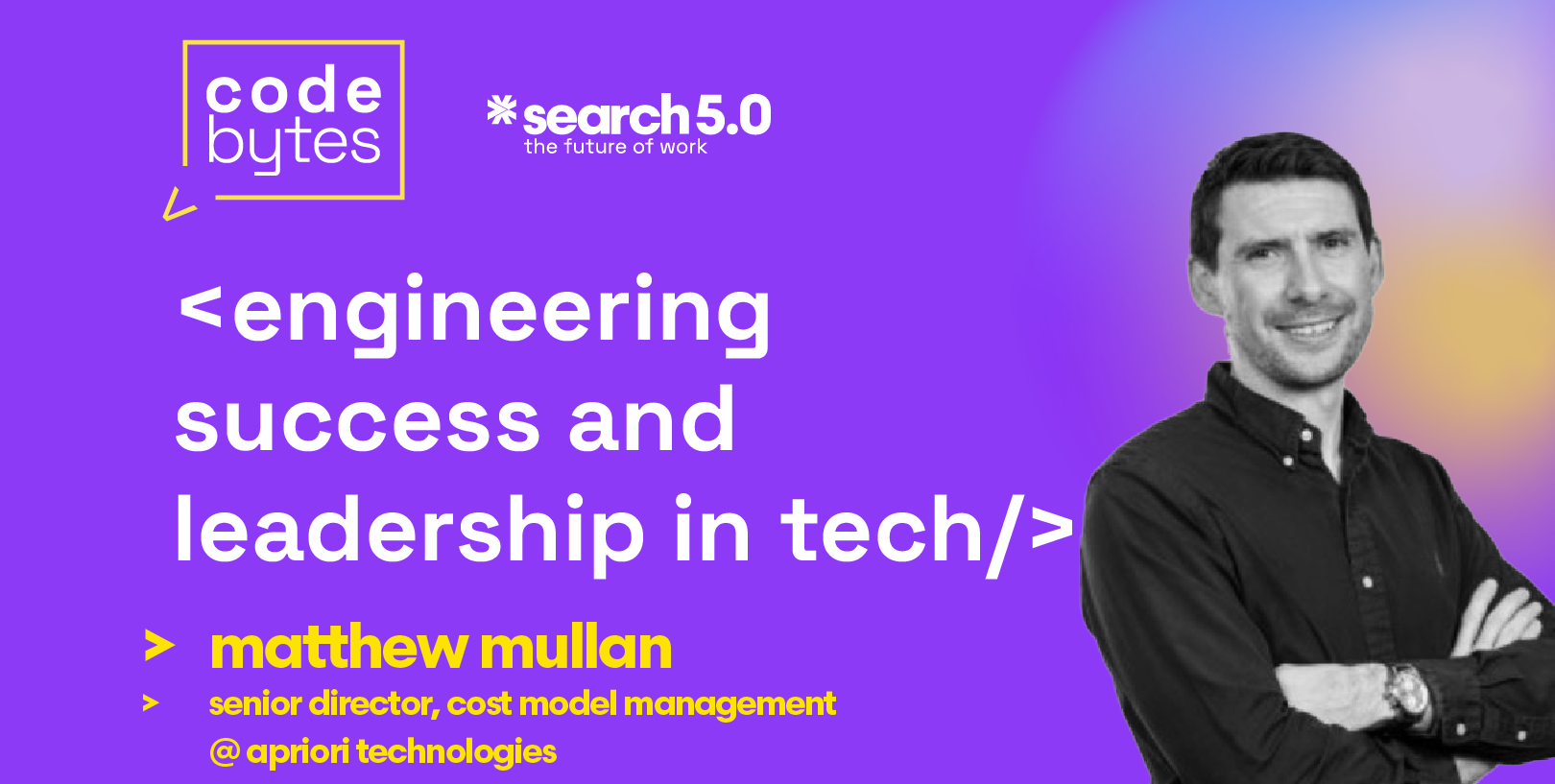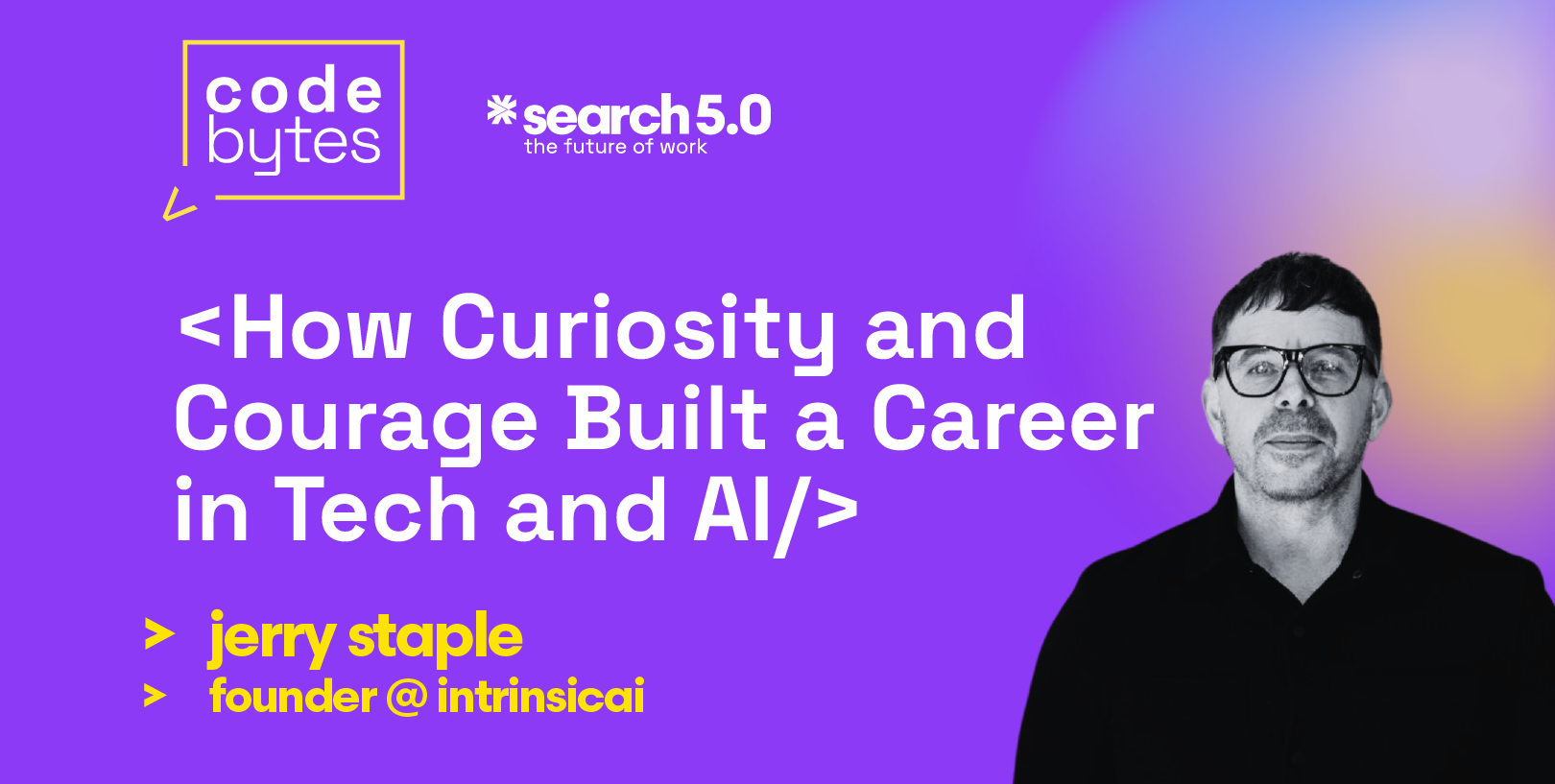
From Aerospace to Tech: Matthew Mullan's Inspiring Journey on CodeBytes
In the latest episode of CodeBytes, host Stephen sits down with Matthew Mullan, Senior Director, Cost Model Development and Belfast Site Lead at aPriori Technologies, to discuss Matthew's fascinating career journey, his insights into the tech and manufacturing industries, and the importance of mentorship, growth, and innovation. This episode offers valuable lessons for anyone in the tech industry or those aspiring to make career shifts into emerging technologies. Through his story, Matthew shares how his transition from aerospace engineering to software development shaped his career and outlook on leadership and technology.
A Career Born in Aerospace
Matthew's career began in an unexpected place—studying aerospace and mechanical engineering at Queen’s University in Belfast. As an aerospace engineer, Matthew gained extensive experience in a technical field that deeply shaped his understanding of engineering principles, problem-solving, and efficiency.
After graduating, he began working as an aircraft stress engineer, collaborating with stress engineers and design engineers. While his technical skills thrived in this role, he and his wife decided to explore life outside of the UK, moving to Canada. However, timing wasn’t on their side. It was the height of the 2008 financial crisis, and finding work in his specialized field was challenging. As Matthew describes in the podcast, “we went over there and spent some time doing roles that worked in engineering, but it was a lot of just picking up jobs as I could.” The economic downturn forced him to take a step back and rethink his career trajectory.
Returning to Belfast, he reached out to his alma mater, Queen’s University, looking for opportunities. In a twist of fate, the lack of available engineering jobs led to an opportunity for him to pursue a PhD, which he jumped at. His PhD focused on building cost estimation models within manufacturing, specifically using simulation and statistical analysis to predict the cost of composite aerospace materials. This experience not only allowed Matthew to delve deeper into the engineering world but also helped him understand the financial and cost-management aspects of manufacturing.
This transition back into academia proved to be a pivotal moment in Matthew’s career, laying the groundwork for his future shift into software development. During this period, he worked closely with a local manufacturing company, which gave him valuable professional experience outside of the typical academic setting.
A Shift to Software Development: From Engineer to Coder
Even though Matthew's early career was grounded in aerospace, he found himself drawn to the power of software as a tool for solving engineering problems. At various points in his career, he had used programming to create tools that made his engineering tasks easier and more efficient, although he didn’t initially consider himself a programmer.
As Matthew recounts in the episode, he was always “relatively proficient at developing little scripts and apps,” starting with simple VBA macros in Excel and eventually expanding into writing Python scripts and more complex software solutions. However, it wasn’t until a chance meeting with a US-based company, aPriori Technologies, that he began to seriously consider a transition into software development.
aPriori was opening an office in Belfast, and Matthew’s PhD work aligned closely with their mission of developing product cost management software. aPriori’s software allows companies to input 3D CAD models and simulate the manufacturing processes required to produce those parts, including estimates for cost, time, tooling, and more. The software provides valuable insights that help companies optimise for cost efficiency and sustainability in the design phase, long before manufacturing begins.
Despite not having formal software development qualifications, Matthew’s strong engineering background and his passion for solving problems with code made him an attractive candidate for aPriori. The company’s focus on hiring engineers with an interest in programming, rather than just looking for those with formal software development degrees, made Matthew’s leap into tech a reality.
He recalls, “I learned Java, I learned Python, I learned development practices, and I sort of built up the skill set within aPriori.” This willingness to dive into the unknown and learn new skills is one of the key takeaways from Matthew’s story. His journey exemplifies how transferable skills—like problem-solving, engineering judgment, and curiosity—can enable career shifts, even across seemingly unrelated industries.
The Power of Mentorship in Career Growth
One of the central themes of this CodeBytes episode is the importance of mentorship in career development. Matthew speaks at length about how mentorship has shaped his career at every stage, from his early days as an aerospace engineer to his current leadership role at aPriori.
“Mentorship is critically important at all stages of someone's career,” Matthew shares, “right from graduate to postgraduate, all the way up to senior levels.” He stresses that effective mentorship is a long-term investment in a person’s development, not just a way to fill short-term skills gaps. Mentors, in his view, should help individuals prepare for future challenges and opportunities, focusing on growth beyond the immediate job.
Matthew recounts how early in his career, he had an executive mentor who would regularly call him into the office to discuss his progress. At the time, he didn’t realize that these check-ins were part of a mentorship relationship, but looking back, he recognizes the significant impact this mentor had on his trajectory. “He was mentoring me for my future career, not just what I was doing at that moment.”
For Matthew, mentorship has been about more than just career advice. It’s about building high-performing teams, helping others grow, and cultivating an environment where innovation can thrive. He emphasises that mentorship should also be selfless, aiming to prepare individuals for the future rather than just improving their current performance.
As someone who has moved from a technical role into management, Matthew highlights the challenges that come with this transition. He shares how mentorship played a crucial role in helping him let go of some technical responsibilities and trust his team to handle tasks he had once done himself. This shift from “doing” to “leading” is often difficult, but with the right support, it can lead to the creation of high-performing, innovative teams.
Building High-Performing Teams and Driving Innovation
At aPriori, Matthew has been instrumental in building and leading teams, especially in the context of cost model development and manufacturing simulation. In the episode, he discusses the importance of fostering a culture where people are empowered to take initiative and challenge the status quo.
He shares how aPriori has embraced a culture of continuous learning and innovation, where team members are encouraged to experiment, fail, and learn from those failures. This mindset has allowed the company to stay at the cutting edge of manufacturing technology, particularly in areas like product cost management and digital twin simulation.
A key part of aPriori’s success has been their focus on interdisciplinary collaboration. Matthew explains how bringing together individuals from different backgrounds—such as engineering, software development, and data analysis—has resulted in innovative solutions that wouldn’t have been possible if everyone had the same skill set or perspective.
This collaborative approach is also reflected in aPriori’s commitment to sustainability. The company’s software not only helps manufacturers optimise for cost and efficiency but also enables them to make more sustainable decisions by simulating the environmental impact of different manufacturing processes. As Matthew points out, sustainability is becoming a crucial consideration in the tech and manufacturing industries, and tools like aPriori’s simulation engine are helping companies meet their sustainability goals.
Advice for Aspiring Technologists
Toward the end of the episode, Stephen asks Matthew for advice he would give to aspiring technologists. Matthew’s response is a testament to his own career journey: “Keep learning, don’t get comfortable.” He emphasizes the importance of pushing beyond your comfort zone and embracing challenges as opportunities for growth.
He encourages technologists to surround themselves with people who challenge them and to seek out diverse perspectives. In a fast-moving industry like tech, the ability to learn from others and adapt to new technologies is crucial.
Finally, Matthew underscores the importance of finding good mentors. “Not all managers are great mentors, and not all mentors are great managers,” he says, but finding the right mentor can make a significant difference in your career. His own experience with mentorship has been instrumental in helping him navigate the various transitions in his career, from aerospace engineering to software development and leadership.
Conclusion
Matthew Mullan’s story, as shared on this episode of CodeBytes, is one of resilience, adaptability, and continuous learning. His journey from aerospace engineering to software development at aPriori Technologies showcases the power of transferable skills, the importance of mentorship, and the need to embrace change in an ever-evolving tech landscape. For anyone in the technology industry, whether you're just starting out or looking to make a career shift, Matthew’s insights offer valuable lessons on how to grow, innovate, and thrive.
As Search 5.0, a leading technology recruitment business, we believe stories like Matthew’s are key examples of the importance of career development, continuous learning, and innovation in tech. Stay tuned for more episodes of CodeBytes, where we bring you inspiring conversations from industry leaders driving change and shaping the future of technology.




